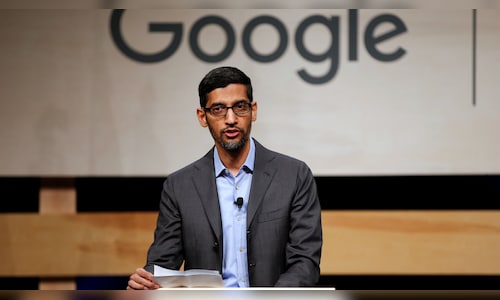Google, which controls roughly 90% of the global search market, faces unprecedented challenges due to the rise of generative artificial intelligence (Gen AI) and chatbots, such as OpenAI’s SearchGPT prototype. This technological shift is putting enormous pressure on Google to adapt or risk being eclipsed.
Microsoft’s $13 billion investment in OpenAI and Apple’s collaboration to integrate ChatGPT into Siri pose a significant challenge to Google’s supremacy. These moves force Google to act decisively to maintain its position in the market.
Historically, Google’s success has been attributed to its user-friendly design and powerful algorithms, which made information retrieval faster and easier than competitors such as Yahoo. By efficiently indexing large amounts of data, Google became the search engine of choice for users.
However, as the web has evolved and generative artificial intelligence technologies have emerged, Google’s once-revolutionary search model is beginning to show signs of age.
AI-powered tools can generate direct answers to user queries, eliminating the need to sift through multiple links, a hallmark of traditional search engines.
This shift in user behavior poses a significant threat to Google’s established model. What was once its greatest strength — simplicity — has become a liability as artificial intelligence platforms transform the way people access information.
Emerging competitors such as Perplexity, a $1 billion startup backed by Amazon founder Jeff Bezos, are gaining ground. These AI tools provide optimized user experiences by offering direct answers rather than lists of links, potentially driving users away from Google’s traditional search service. The presence of intrusive ads in Google search results further complicates the user experience, making alternatives more appealing.
Read also: Judge gives US regulators until December to propose sanctions over Google’s illegal search monopoly
This transition represents a fundamental threat to Google’s core business model, which relies heavily on advertising revenue.
In the second quarter of this year, Google Search alone generated $48.5 billion of Alphabet’s $84.7 billion in total revenue.
Furthermore, licensing agreements between OpenAI and major publishers such as the Financial Times and Associated Press could restrict the availability of content on Google, further undermining its dominance.
The relationship between Google and content creators has often been tense, with many publishers expressing frustration at how their content is used. Users may look elsewhere for information if AI platforms secure exclusive deals, diminishing Google’s value proposition.
Despite these challenges, Google has approached the rise of the AI Generation with caution. While the company has begun to incorporate AI features, such as AI Overview summaries, at the top of search results, critics argue that its focus on protecting its search and advertising monopoly has led to a conservative strategy regarding AI development.
Google’s search business remains a lucrative asset and the company appears hesitant to make moves that might threaten its existing revenue streams.
A pressing question is whether Google should follow OpenAI’s lead and strike more licensing deals with publishers. However, such moves could come with significant costs. In 2020, Google pledged to pay news providers $1 billion over three years, and potential expenses related to copyright infringements could further strain its finances.
On the hardware side, Google has a head start with its recently launched Pixel 9 smartphones, which feature Gemini, Google’s AI personal assistant. This integration demonstrates how Google can incorporate AI into its devices, potentially setting industry standards for Android manufacturers like Samsung and Xiaomi.
In contrast, Apple has developed its own AI model, Apple Intelligence, which is designed primarily for user privacy and operates on devices rather than through cloud-based systems.
For Google to make the most of its AI capabilities, it must address deeper organizational issues. While a company strength, a culture of autonomy can get in the way of consistent execution of strategy. CEO Sundar Pichai will need to unify disparate teams — those managing search, computing platforms and AI — under a singular vision.
Google’s ability to innovate will be crucial, especially as voice search evolves. Users are increasingly looking for faster, more intuitive ways to access information, and voice search facilitates this by allowing for natural language queries. As smart speakers and AI-powered smartphones proliferate, Google must ensure its technology leads these changes.
Read also: UK regulator says Google is abusing its power over ads on websites
Disclaimer:
The information contained in this post is for general information purposes only. We make no representations or warranties of any kind, express or implied, about the completeness, accuracy, reliability, suitability or availability with respect to the website or the information, products, services, or related graphics contained on the post for any purpose.
We respect the intellectual property rights of content creators. If you are the owner of any material featured on our website and have concerns about its use, please contact us. We are committed to addressing any copyright issues promptly and will remove any material within 2 days of receiving a request from the rightful owner.

